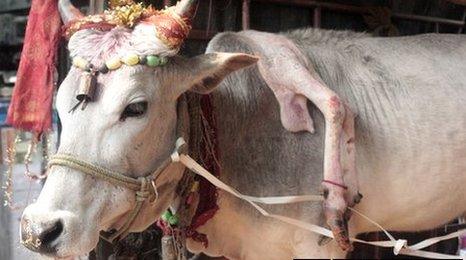Sacred cows honoured with carrots and flowers
- Published
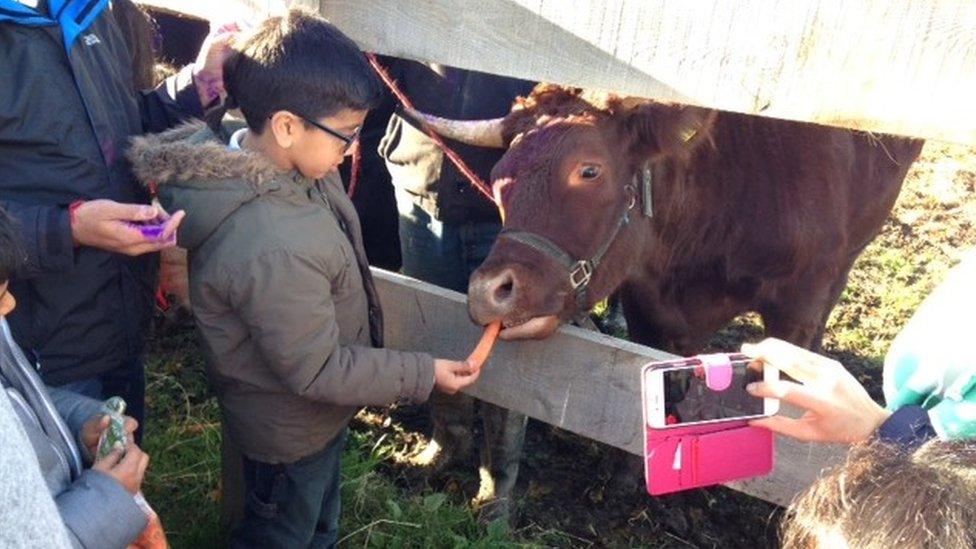
The ceremony took place at Britain's first slaughter-free farm in Groby, Leicestershire
A ceremony honouring the sacred cow has been held at Britain's first slaughter-free dairy farm in Leicestershire.
The event, organised by Hindus in Leicester, took place at a farm in Groby, created on land donated by a Hare Krishna temple.
Home-made jaggery sweets and organic vegetables were offered to cows at the farm in thanks for the milk they produce.
Officials said the idea was to offer "love and respect" to the animals.
Pradyumna Das, temple president of the International Society for Krishna Consciousness, external in Leicester, said: "Cows are especially revered by Hindus all over the world, and on this day we offer them thanks, love, and respect for what they offer to us."
The ceremony was part of Diwali festivities in Leicester, one of the largest events of its kind held outside of India.
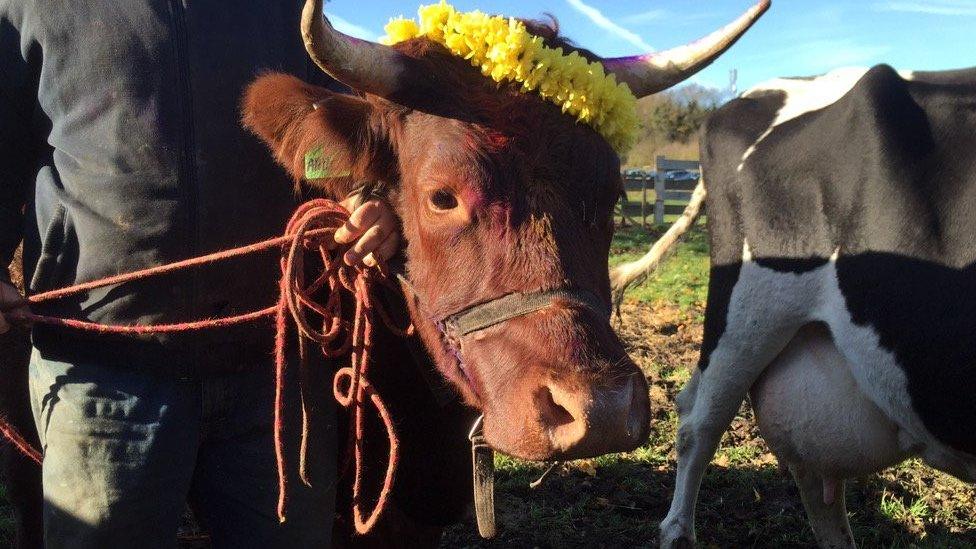
The idea of the event was to offer "love and respect" to the animals, organisers said
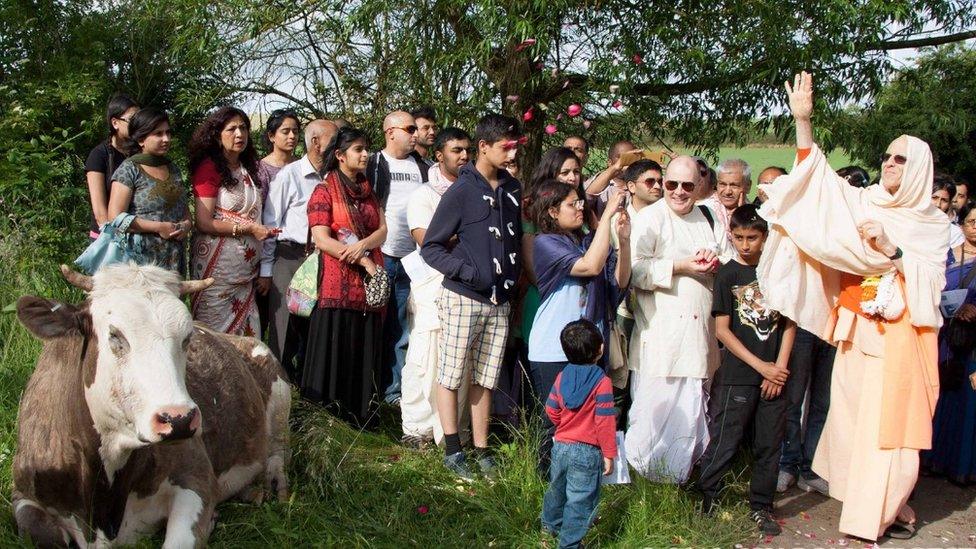
Jaggery sweets, organic vegetables and flowers are offered to the herd
Hindus regard cows as sacred and milk production at the farm follows the teaching of Ahimsa, which is often translated as non-violence.
In conventional farms, male calves born to dairy cows are normally killed or sold for meat, while female cows are killed when they get older and cannot produce as much milk.
The Ahimsa Dairy Foundation, external said cows could live up to the age of 20.
The foundation said its mantra was that "no cow, calf or bull in our herd will ever be killed and are allowed to live out their lives in their entirety".

Holy cows - why are they revered?
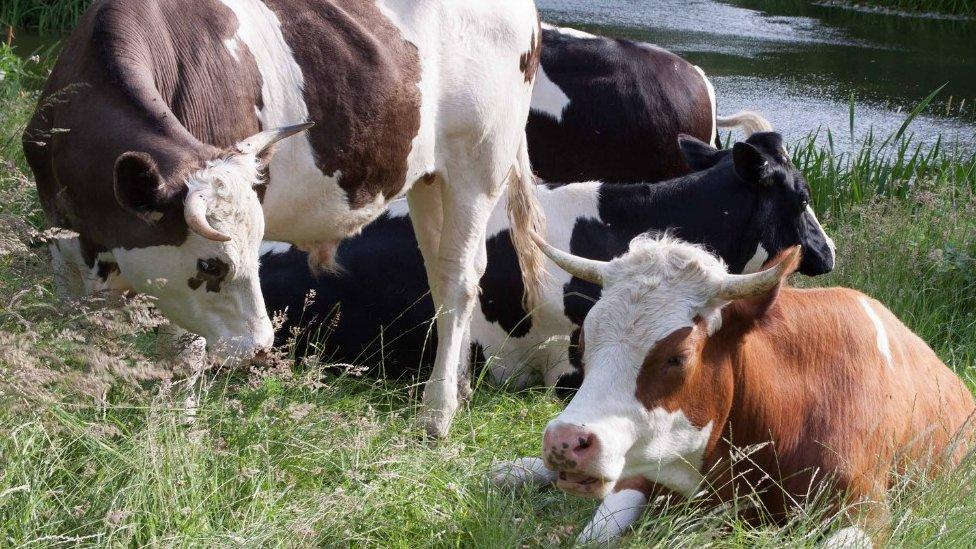
In rural India cows and bulls are considered the most useful of all domestic beasts
Eating only grass, one cow produces more milk than a whole family can drink in a day. What is not used is turned into yoghurt, cheese, butter and ghee
Because cows supply milk, in Indian culture they are looked upon as "a mother", and revered as such
The stool of a cow has antiseptic properties and is widely used in medicine - Cow urine is also prescribed in some places
In many areas of India cow pats are dried in the sun and used as fuel for cooking
When a cow dies she gives her skin for shoes and bags, and her horns for other implements
The bull is still used in farming throughout rural India, and is seen as a father, working hard to produce man's food. And as a father he too is considered worthy of reverence
Source: Bhaktivedanta Manor - UK home of the Hara Krishna Movement

- Published12 November 2015

- Published2 July 2014
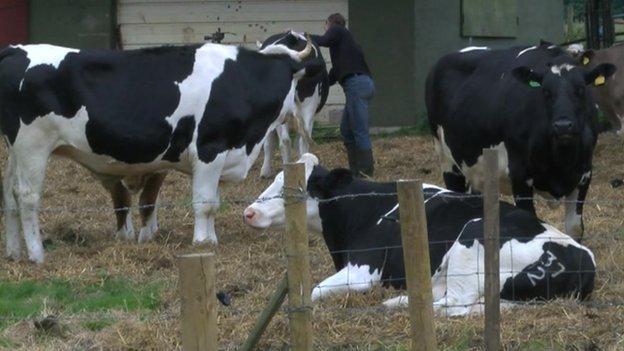
- Published24 February 2014
